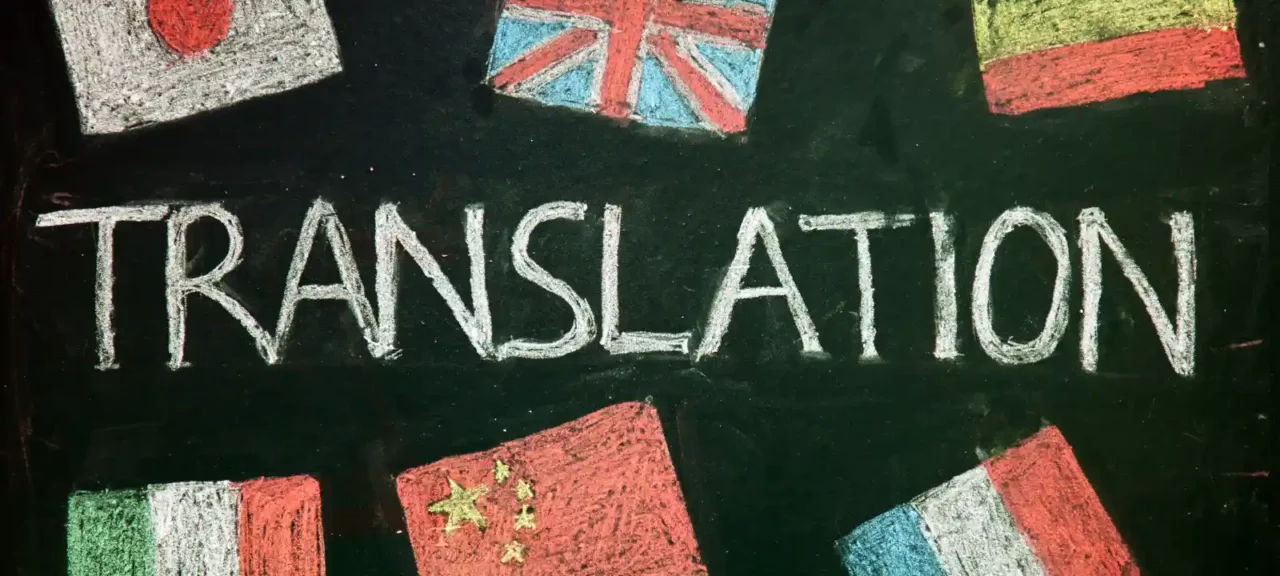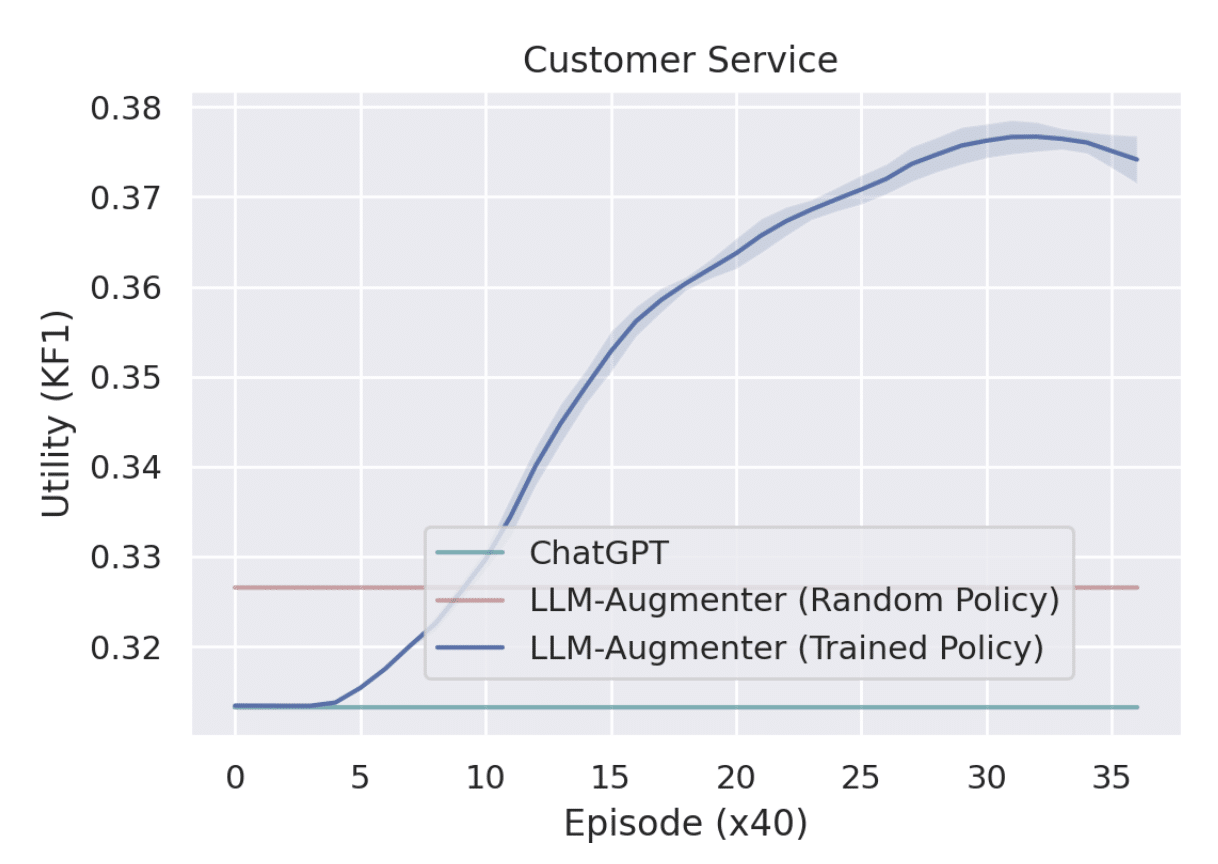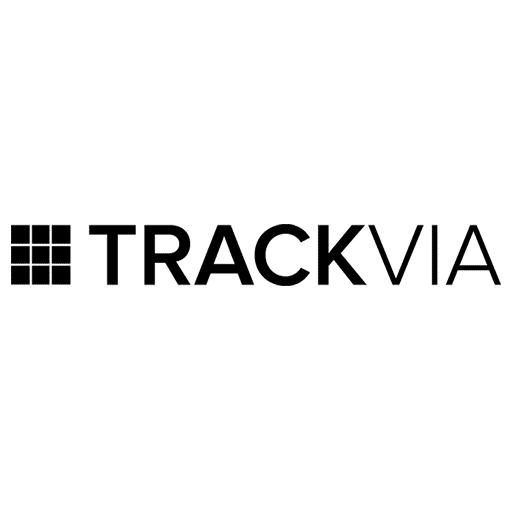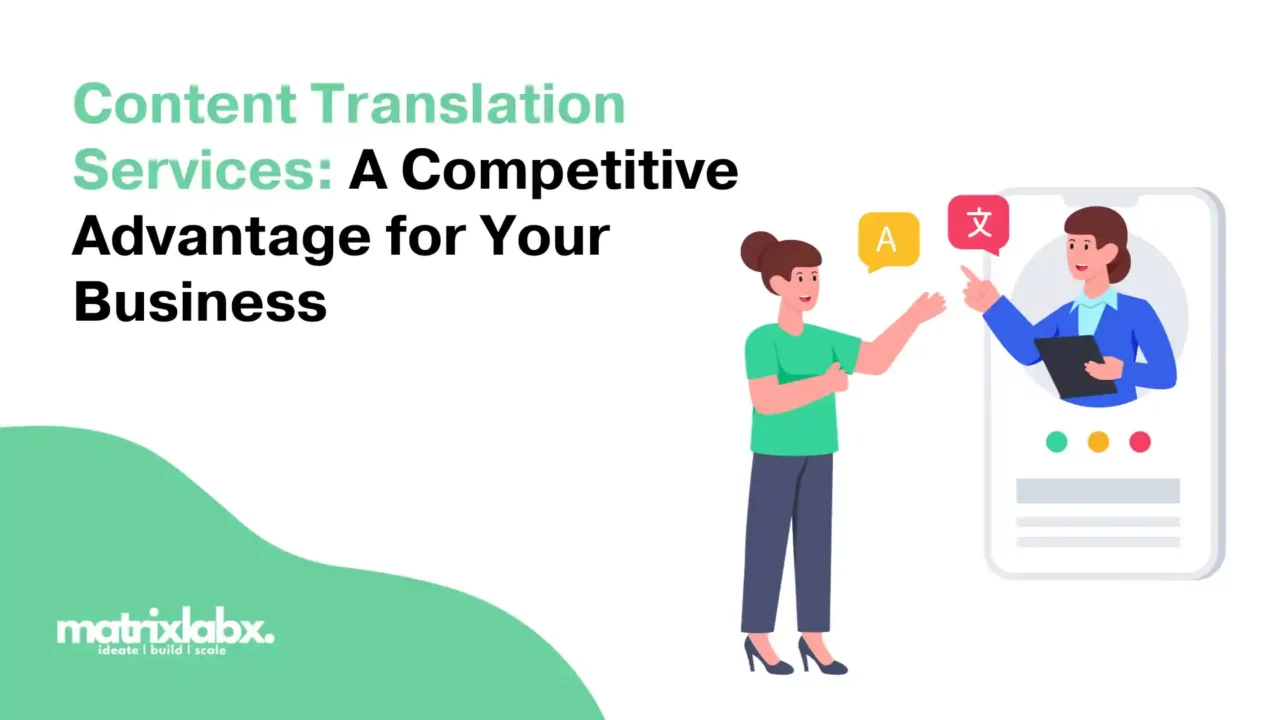How Content Translation Services Can Help You Reach a Global Audience
Learn How Content Translation Services Can Help You Reach a Global Audience.
Content translation services can help you gain a competitive advantage over competitors who do not use translation services. This is because translation services enable businesses to reach a wider audience and provide better customer service.
What are content translation services?
Content translation products are businesses or organizations providing text-based content translation services. This can include a wide range of materials, such as:
- Websites
- Blog posts
- Articles
- White papers
- Ebooks
- Product descriptions
- Marketing materials
- Legal documents
- Medical documents
- Educational materials
Content translation typically employs a team of translators who are native speakers of the target language(s). This ensures that the translated content is accurate, culturally appropriate, and fluent. 10 Most In-Demand Types of SEO Services to Focus On in 2025
Struggling to Keep Up with Content Demands?
In today’s digital landscape, creating consistent, high-quality content is more challenging—and more important—than ever. Without a clear plan and the right tools, your brand risks falling behind in the crowded marketplace.
Language translation services can be used by a variety of businesses and organizations, including:
- E-commerce businesses
- Software companies
- Technology companies
- Marketing agencies
- Law firms
- Medical institutions
- Educational institutions
- Government agencies
Content translation services can be a valuable asset for businesses and organizations that want to reach a global audience. By translating their content into multiple languages, they can increase brand awareness, generate leads, and boost sales.
Here are some of the benefits of using content translation services:
- Reach a wider audience: Language translation services can help businesses and organizations reach a wider audience by translating their content into multiple languages. This can be especially beneficial for businesses and organizations that want to expand into new markets.
- Improve customer satisfaction: Content translation can help businesses and organizations improve customer satisfaction by providing customers with information and support in their languages. This can lead to increased customer loyalty and repeat business.
- Gain a competitive advantage: Content translation can help businesses and organizations gain a competitive advantage over competitors who do not use translation services. Translation services enable businesses and organizations to reach a wider audience and provide better customer service.
Overall, content translation products can be a valuable tool for businesses and organizations that want to succeed in the global marketplace.
AI-driven translation services use artificial intelligence (AI) to translate text from one language to another. AI translation services are becoming increasingly popular, as they offer several advantages over traditional human-based translation services, including:
- Speed: AI translation services can translate text faster than human translators, making them ideal for large-scale translation projects.
- Cost: AI translation services are typically much cheaper than human-based translation services.
- Accuracy: AI translation services are constantly improving their accuracy, and many now produce translations comparable to those produced by human translators.
AI translation services use neural machine translation (NMT) models. These models are trained on massive datasets of text and code in multiple languages. This training allows them to learn the patterns and rules of language and generate accurate and fluent translations.

AI-driven translation services are used by a wide range of businesses and organizations, including:
- Global businesses: AI translation services help businesses communicate with customers and partners worldwide.
- E-commerce businesses: AI translation services help e-commerce businesses sell their products and services to international customers.
- Content creators: AI translation services help creators translate their content into multiple languages to reach a wider audience.
- Language service providers: Language service providers use AI translation services to improve the efficiency and accuracy of their translation services.
Here are some examples of popular AI-driven translation services:
- Google Translate
- AITranslatePad
- Bing Microsoft Translator
- DeepL
- Reverso Translation
- memoQ Translator PRO
- Systran Translate PRO
- Smartling
- Crowdin
- TextUnited
- Amazon Translate
- Memsource
AI-driven translation services are still under development, but they have the potential to revolutionize the way that we communicate and translate information.
The industries that use translation services the most are:

Technology:
The technology industry constantly expands into new markets, and translation services are essential for communicating with customers and partners worldwide. Technology companies must also translate their products and services into multiple languages to reach a wider audience. AI Blog Post Generation GPT Agent: Unleash the Future of Content Creation
Technology companies use translation services in a variety of ways, including:
- Translating products and services: Technology companies must translate their products and services into multiple languages to reach a global audience. This includes translating websites, apps, software interfaces, and user manuals.
- Communicating with customers and partners: Technology companies have customers and partners worldwide, so they need to be able to communicate with them in their languages. Translation services can translate emails, letters, presentations, and other communication materials.
- Localizing marketing and sales content: Technology companies need to localize their marketing and sales content for different markets. This includes translating and adapting the content to reflect each market’s cultural and linguistic norms.
- Supporting global teams: Technology companies often have employees from all over the world. Translation services can translate training materials, company policies, and other internal communication materials.
The advantages of using translation services for technology companies include:
- Reaching a global audience: Translation services can help technology companies reach a global audience with their products and services. This can lead to increased sales and revenue.
- Improving customer service: Translation services can help technology companies improve customer service by providing support in multiple languages. This can lead to happier customers and increased customer loyalty.
- Gaining a competitive advantage: Technology companies that use translation services can gain a competitive advantage over their competitors who do not. They can reach a wider audience and provide better customer service.
Overall, translation services are essential for technology companies that want to succeed in the global marketplace.
Here are some specific examples of how technology companies use translation services:
- Google: Google uses translation services to translate its products and services into over 100 languages. This includes translating Google Search, Gmail, Google Docs, and other popular Google products.
- Microsoft: Microsoft uses translation services to translate its products and services into over 60 languages, including Windows, Office, and Azure.
- Apple: Apple uses translation services to translate its products and services into over 30 languages, including iOS, macOS, and watchOS.
- Amazon: Amazon uses translation services to translate its products and services into over 20 languages, including Amazon.com and Amazon Web Services.
These are just a few examples of how technology companies use translation services. Translation services are essential for technology companies that want to succeed in the global marketplace.
Affordable SEO Solutions That Drive Real Results
Matrix Marketing Group Delivers Customized SEO Strategies with Transparent Pricing for Maximum ROI. See SEO Services.
Manufacturing:
Manufacturing companies often have global supply chains and need to be able to communicate with suppliers and customers in multiple languages. Translation services, such as user manuals and training materials, are also essential for translating technical documentation.
How do manufacturing companies use language translation services, and what are the advantages
- Translating technical documentation: Manufacturing companies must translate technical documentation, such as user manuals, training materials, and product specifications, into multiple languages for their global customers and employees.
- Communicating with suppliers and partners: Manufacturing companies often have suppliers and partners worldwide, so they need to be able to communicate with them in their languages. Translation services can translate emails, contracts, and other communication materials.
- Localizing marketing and sales materials: Manufacturing companies need to localize their marketing and sales materials for different markets. This includes translating and adapting the content to reflect each market’s cultural and linguistic norms.
- Supporting global teams: Manufacturing companies often have employees from all over the world. Translation services can translate training materials, company policies, and other internal communication materials.
The advantages of using translation services for manufacturing companies include:
- Improved communication and collaboration: Translation services can help manufacturing companies improve communication and collaboration with their global customers, suppliers, partners, and employees, leading to increased efficiency and productivity.
- Reduced risk: Translation services can help manufacturing companies reduce the risk of errors and misunderstandings when communicating with global stakeholders. This can lead to improved product quality and safety.
- Increased market share: Translation services can help manufacturing companies increase their market share by enabling them to reach new markets and customers. This can lead to increased sales and revenue.
Overall, translation services are essential for manufacturing companies that want to succeed in the global marketplace.
Here are some specific examples of how manufacturing companies use translation services:
- Toyota: Toyota uses translation services to translate its technical documentation, marketing materials, and internal communication materials into over 50 languages.
- Volkswagen: Volkswagen uses translation services to translate its technical documentation, marketing materials, and internal communication materials into over 20 languages. What is HubSpot Consulting?
- General Motors: General Motors uses translation services to translate its technical documentation, marketing materials, and internal communication materials into over 15 languages.
- Boeing: Boeing uses translation services to translate its technical documentation, marketing materials, and internal communication materials into over 10 languages.
These are just a few examples of how manufacturing companies use translation services. Translation services are essential for manufacturing companies that want to succeed in the global marketplace.
Government:
Governments need to be able to communicate with citizens and businesses in multiple languages. Translation services also translate legal documents, such as treaties and contracts.
Government institutions use translation services in a variety of ways, including:
- Communicating with citizens and businesses: Government institutions need to be able to communicate with citizens and businesses in multiple languages. Translation services translate websites, government documents, and other communication materials.
- Providing services to multilingual communities: Government institutions must be able to provide services to multilingual communities. Translation services translate government forms, applications, and other service materials.
- Supporting international relations: Government institutions use translation services to support international relations. This includes translating diplomatic correspondence, treaties, and other documents.
- Promoting cultural understanding: Government institutions use translation services to promote cultural understanding. This includes translating cultural materials like books, movies, and music.
The advantages of using translation services for government institutions include:
- Improved communication and access to services: Translation services can help government institutions improve communication and access to services for citizens and businesses from all language backgrounds. This can lead to increased civic engagement and economic growth.
- Reduced risk of errors and misunderstandings: Translation services can help government institutions reduce the risk of errors and misunderstandings when communicating with multilingual stakeholders. This can lead to improved decision-making and public trust.
- Enhanced international relations: Translation services can help government institutions enhance international relations by enabling them to communicate effectively with foreign governments and organizations. This can lead to increased cooperation and understanding.
- Promoted cultural understanding: Translation services can help government institutions promote cultural understanding by enabling them to share their culture with the world and to learn about other cultures. This can lead to increased tolerance and respect.
Translation services are essential for government institutions that want to be inclusive and effective. AI vs. Human Content: Navigating the Future of Storytelling
Here are some specific examples of how government institutions use translation services:
- The United States Department of State uses translation services to translate diplomatic correspondence, treaties, and other documents into over 80 languages.
- The United Nations: The United Nations uses translation services to translate documents and proceedings into its six official languages: Arabic, Chinese, English, French, Russian, and Spanish.
- The European Union: The European Union uses translation services to translate documents and proceedings into 24 official languages.
These are just a few examples of how government institutions use translation services. Translation services are essential for government institutions that want to be inclusive and effective.
Healthcare:

The healthcare industry is increasingly globalized, and translation services are essential for communicating with patients and healthcare professionals from different countries. Translation services also translate medical documents, such as patient records and research papers.
How do healthcare institutions use content translation products, and what are the advantages
Healthcare institutions use content translation in a variety of ways, including:
- Translating patient information materials: Healthcare institutions must translate patient information materials, such as brochures, consent forms, and discharge instructions, into multiple languages for multilingual patients and their families.
- Communicating with patients and their families: Healthcare institutions need to be able to communicate with patients and their families in their languages. Translation services can translate medical consultations, appointments, and other communication materials.
- Localizing healthcare websites and apps: Healthcare institutions need to localize their websites and apps for different markets. This includes translating and adapting the content to reflect each market’s cultural and linguistic norms. What is Digital Marketing for Construction Companies?
- Supporting global clinical trials: Healthcare institutions often participate in global clinical trials. Translation services can be used to translate clinical trial protocols, informed consent forms, and other trial-related materials.
The advantages of using content translation services for healthcare institutions include:
- Improved patient care: Translation services can help healthcare institutions improve patient care by enabling them to communicate effectively with multilingual patients and their families. This can lead to a better understanding of medical conditions and treatments and improved adherence to treatment plans.
- Reduced risk of errors and misunderstandings: Translation services can help healthcare institutions reduce the risk of errors and misunderstandings when communicating with multilingual patients and their families. This can lead to improved patient safety and outcomes.
- Increased patient satisfaction: Translation services can help healthcare institutions increase patient satisfaction by providing patients with the information and support they need in their languages. This can lead to stronger patient-provider relationships and increased loyalty to the healthcare institution.
- Enhanced global reach: Translation services can help healthcare institutions enhance their global reach by enabling them to participate in global clinical trials and communicate with multilingual patients and healthcare professionals worldwide. This can lead to new opportunities for research and collaboration.
Overall, content translation services are essential for healthcare institutions that want to provide high-quality care to all patients, regardless of their language background.
Here are some specific examples of how healthcare institutions use content translation products:
- The Mayo Clinic: The Mayo Clinic uses translation services to translate patient information materials, medical records, and other clinical content into over 40 languages.
- The Cleveland Clinic: The Cleveland Clinic uses translation services to translate patient information materials, medical records, and other clinical content into over 20 languages.
- Johns Hopkins Medicine: Johns Hopkins Medicine uses translation services to translate patient information materials, medical records, and other clinical content into over 15 languages.
These are just a few examples of how healthcare institutions use translation services. Translation services are essential for healthcare institutions that want to provide high-quality care to all patients, regardless of their language background.
Your Blueprint for SEO Success in 2025
Whether you’re a business owner, marketer, or seasoned SEO professional, this guide is tailored to give you a competitive edge in the evolving digital landscape. Get SEO Pricing.

Education:
Educational institutions are increasingly attracting students from all over the world. Translation services are essential for communicating with students and their families and translating educational materials.
Educational institutions use content translation services in a variety of ways, including:
- Translating educational materials: Educational institutions must translate educational materials, such as textbooks, worksheets, and lesson plans, into multiple languages for their multilingual students and their families.
- Communicating with students and their families: Educational institutions need to be able to communicate with students and their families in their languages. Translation services can translate emails, letters, and other communication materials.
- Localizing educational websites and apps: Educational institutions need to localize their websites and apps for different markets. This includes translating and adapting the content to reflect each market’s cultural and linguistic norms.
- Supporting global collaboration: Educational institutions often collaborate with other educational institutions and organizations worldwide. Translation services can be used to translate research papers, conference presentations, and other collaborative materials.
The advantages of using translation services for educational institutions include:
- Improved student outcomes: Translation services can help educational institutions improve student outcomes by enabling them to provide students with the information and support they need in their languages. This can lead to a better understanding of course material and improved assessment performance.
- Increased student engagement: Translation services can help educational institutions increase student engagement by allowing students to learn about different cultures and languages. This can lead to a more inclusive and welcoming learning environment.
- Reduced risk of errors and misunderstandings: Translation services can help educational institutions reduce the risk of errors and misunderstandings when communicating with multilingual students and their families. This can lead to improved communication and relationships.
- Enhanced global reach: Translation services can help educational institutions enhance their global reach by enabling them to collaborate with other educational institutions and organizations worldwide. This can lead to new opportunities for research, learning, and exchange.
Content translation is essential for educational institutions that want to provide high-quality education to all students, regardless of their language background.
Here are some specific examples of how educational institutions use Language translation services:
- The University of Cambridge: The University of Cambridge uses translation services to translate educational materials, student records, and other university-related content into over 20 languages.
- The University of Oxford: The University of Oxford uses translation services to translate educational materials, research papers, and other university-related content into over 15 languages.
- The Massachusetts Institute of Technology (MIT): MIT uses translation services to translate educational materials, course websites, and other university-related content into over 10 languages.
These are just a few examples of educational institutions using content services. Translation services are essential for educational institutions that want to provide high-quality education to all students, regardless of their language background.
Content That Converts: Transparent Pricing for Maximum ROI
Explore Matrix Marketing Group’s Flexible Pricing Plans for Premium Content and Marketing Solutions Tailored to Your Goals.
Other industries that rely heavily on language translation services include:
- Retail
- E-commerce
- Tourism and hospitality
- Finance and banking
- Legal
- Media and entertainment
In today’s globalized world, translation services are essential for businesses and organizations of all sizes. They can help businesses reach new markets, improve customer service, and increase sales.
Content translation can benefit your company through better content, faster contact, and more affordable localization of marketing content in the following ways:
Better content:
Translation services can help you create better marketing content by providing accurate, culturally appropriate, and fluent translations. This is because content translation typically employs a team of translators who are native speakers of the target language(s). Additionally, content translation can help you to adapt your marketing content to the specific needs of your target audience in each market.
Faster content:
Website content translation services can help you contact your target audience more quickly by translating your marketing content into multiple languages.
This is because content translation can typically translate large volumes of content quickly. Content services can help you to ensure that your marketing content is translated accurately and consistently across all languages. Content Marketing Financial Firms
More affordable localization: Content translation can help you to localize your marketing content more affordably than hiring in-house translators.
This is because content translation typically offers competitive rates and can often provide discounts for large volumes of content. Additionally, content services can help you save time and money by eliminating the need to recruit, train, and manage in-house translators.
Here are some specific examples of how translation services can benefit your company:
- A global e-commerce business can use content services to translate its website and product descriptions into multiple languages. This can help the business to reach a wider audience and increase sales.
- A software company can use content translation to translate its user manuals and support documentation into multiple languages. This can help the company to improve customer satisfaction and reduce support costs.
- A technology company can use content translation to translate its marketing materials and website into multiple languages. This can help the company expand into new markets and generate leads.
- A marketing agency can use translation services to localize its clients’ marketing content for different markets. This can help the agency to improve its clients’ marketing results and increase its revenue.
Matrix Marketing Group’s professional translation services can be a valuable tool for companies of all sizes. By using translation services, companies can improve their marketing content, reach a wider audience, and generate more leads and sales.
Available languages writing and content translations:
- Arabic
- Bengali
- Bulgarian
- Chinese (Simplified / Traditional)
- Croatian
- Czech
- Danish
- Dutch
- English
- Estonian
- Farsi
- Finnish
- French
- German
- Greek
- Gujarati
- Hebrew
- Hindi
- Hungarian
- Indonesian
- Italian
- Japanese
- Kannada
- Korean
- Latvian
- Lithuanian
- Malayalam
- Marathi
- Norwegian
- Polish
- Portuguese
- Romanian
- Russian
- Serbian
- Slovak
- Slovenian
- Spanish
- Swahili
- Swedish
- Tamil
- Telugu
- Thai
- Turkish
- Ukrainian
- Urdu
- Vietnamese
Countries and regions availability:
- Åland Islands
- Albania
- Algeria
- American Samoa
- Andorra
- Angola
- Anguilla
- Antarctica
- Antigua and Barbuda
- Argentina
- Armenia
- Aruba
- Australia
- Austria
- Azerbaijan
- Bahrain
- Bangladesh
- Barbados
- Belgium
- Belize
- Benin
- Bermuda
- Bhutan
- Bolivia
- Bosnia and Herzegovina
- Botswana
- Brazil
- British Indian Ocean Territory
- British Virgin Islands
- Brunei
- Bulgaria
- Burkina Faso
- Burundi
- Cabo Verde
- Cambodia
- Cameroon
- Caribbean Netherlands
- Cayman Islands
- Central African Republic
- Chad
- Chile
- Christmas Island
- Cocos (Keeling) Islands
- Colombia
- Comoros
- Cook Islands
- Costa Rica
- Côte d’Ivoire
- Croatia
- Curaçao
- Czech Republic
- Democratic Republic of the Congo
- Denmark
- Djibouti
- Dominica
- Dominican Republic
- Ecuador
- Egypt
- El Salvador
- Equatorial Guinea
- Eritrea
- Estonia
- Eswatini
- Ethiopia
- Falkland Islands (Islas Malvinas)
- Faroe Islands
- Fiji
- Finland
- France
- French Guiana
- French Polynesia
- French Southern and Antarctic Lands
- Gabon
- Georgia
- Germany
- Ghana
- Gibraltar
- Greece
- Greenland
- Grenada
- Guadeloupe
- Guam
- Guatemala
- Guernsey
- Guinea
- Guinea-Bissau
- Guyana
- Haiti
- Heard Island and McDonald Islands
- Honduras
- Hungary
- Iceland
- India
- Indonesia
- Iraq
- Ireland
- Isle of Man
- Israel
- Italy
- Jamaica
- Japan
- Jersey
- Jordan
- Kazakhstan
- Kenya
- Kiribati
- Kosovo
- Kuwait
- Kyrgyzstan
- Laos
- Latvia
- Lebanon
- Lesotho
- Liberia
- Libya
- Liechtenstein
- Lithuania
- Luxembourg
- Madagascar
- Malawi
- Malaysia
- Maldives
- Mali
- Malta
- Marshall Islands
- Martinique
- Mauritania
- Mauritius
- Mayotte
- Mexico
- Micronesia
- Moldova
- Monaco
- Mongolia
- Montenegro
- Montserrat
- Morocco
- Mozambique
- Myanmar
- Namibia
- Nauru
- Nepal
- Netherlands
- New Caledonia
- New Zealand
- Nicaragua
- Niger
- Nigeria
- Niue
- Norfolk Island
- North Macedonia
- Northern Mariana Islands
- Norway
- Oman
- Pakistan
- Palau
- Palestine
- Panama
- Papua New Guinea
- Paraguay
- Peru
- Philippines
- Pitcairn Islands
- Poland
- Portugal
- Puerto Rico
- Qatar
- Republic of Cyprus
- Republic of the Congo
- Réunion
- Romania
- Rwanda
- Saint Barthélemy
- Saint Helena, Ascension and Tristan da Cunha
- Saint Kitts and Nevis
- Saint Lucia
- Saint Martin
- Saint Pierre and Miquelon
- Saint Vincent and the Grenadines
- Samoa
- San Marino
- São Tomé and Príncipe
- Saudi Arabia
- Senegal
- Serbia
- Seychelles
- Sierra Leone
- Singapore
- Sint Maarten
- Slovakia
- Slovenia
- Solomon Islands
- Somalia
- South Africa
- South Georgia and the South Sandwich Islands
- South Korea
- South Sudan
- Spain
- Sri Lanka
- Sudan
- Suriname
- Svalbard and Jan Mayen
- Sweden
- Switzerland
- Taiwan
- Tajikistan
- Tanzania
- Thailand
- The Bahamas
- The Gambia
- Timor-Leste
- Togo
- Tokelau
- Tonga
- Trinidad and Tobago
- Tunisia
- Türkiye
- Turkmenistan
- Turks and Caicos Islands
- Tuvalu
- U.S. Virgin Islands
- Uganda
- Ukraine
- United Arab Emirates
- United Kingdom
- United States
- United States Minor Outlying Islands
- Uruguay
- Uzbekistan
- Vanuatu
- Vatican City
- Venezuela
- Vietnam
- Wallis and Futuna
- Western Sahara
- Yemen
- Zambia
- Zimbabwe
Matrix translation services are available in over 40 languages and 230 countries and territories. We are expanding to more countries and territories in a way that is consistent with local regulations and our AI principles.
This means that we are committed to providing high-quality translation services that meet the needs of our customers worldwide.
We are also committed to protecting the privacy and security of our customers’ data. Translation should be accessible to everyone, and we are working to make our services available to as many people as possible. Learn more about AIContentPad and AITranslatePad.





